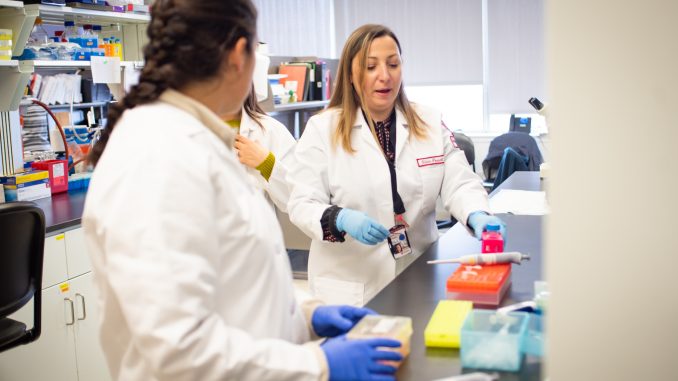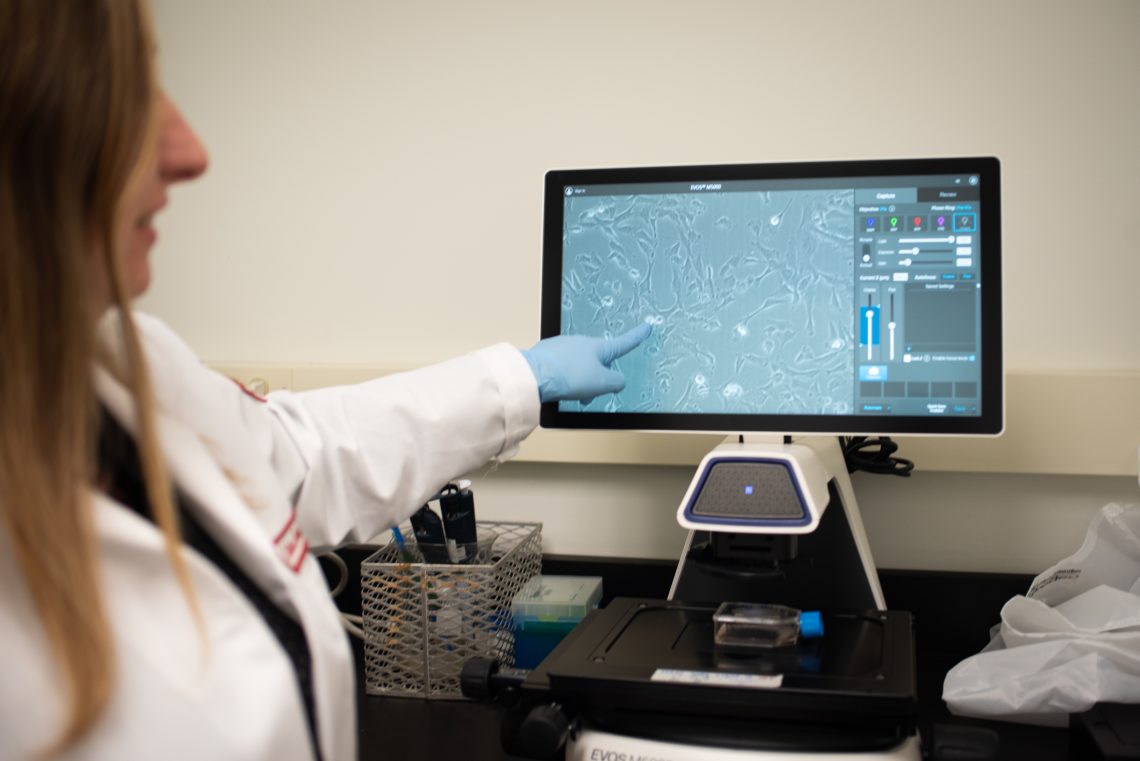
Ever since she was a child, Silvia Fossati was fascinated with experiments and mixing different substances and solutions and later on, learning about molecular biology and genetics in the brain.
“I was always driven to know more on how this complex organ worked and the link between chemicals, brain cells and the formation of memory and other brain responses that are associated with our personality,” said Fossati, the associate director at Temple University’s Alzheimer’s Center.
After high school, she didn’t know what area to study to choose: psychiatry, psychology or molecular biology. But now, her field combines all these passions.
In January 2020, Fossati, an associate professor of pharmacology, received a $500,000 grant from the Foundation’s Awards Program for Alzheimer’s Disease Drug Discovery Research, which supports medical research on diseases affecting older adults. Her application to the foundation required short project proposal.
“This is a very competitive grant and the foundation selects their project-based not only on the science and the importance of the project but also they need to see the team that is gonna perform the research,” said Domenico Praticò, the director at the Alzheimer’s Center at Temple. “Obviously, Dr. Fossati was considered by the foundation as excellent and well qualified to lead and perform the study.”
Fossati plans to develop a new Alzheimer’s medicine from existing ones that treat other conditions, like glaucoma and high-altitude sickness, she said. She’s previously completed studies proving the drugs are effective at targeting certain features of Alzheimer’s disease, like mitochondrial dysfunction and inflammation.

Alzheimer’s disease is a type of dementia that causes memory, thinking and behavior problems, which worsen over time, according to the Alzheimer’s Association. It develops slowly and worsens over time, causing problems with memory, thinking and behavior. Symptoms may become severe enough to interfere with daily tasks.
Fossati will collaborate with Marc Ilies, an instructor at the School of Pharmacy. The two met in June 2019 to submit the first part of the application for the grant by the end of August, Ilies said.
Ilies enjoys working with Fossati because she is very enthusiastic and dynamic, he added. They already formulated some hypotheses to confirm or invalidate in their research, Illies added.
“We are looking into different cell death pathways in the brain, and we want to understand what causes the death of neurons and the cells that are also present in the brain,” Ilies said. “We want to get a deeper understanding of those pathways.”
Fossati’s project is exciting because it’s going to look at Alzheimer’s disease in a different way, Pratico said. It will focus on brain vessels, specifically its abilities in supporting normal brain energy by looking at mitochondria, unlike the process in the past 20 years which focused on a protein related to the disease, according to Stanford Medicine.
The new approach is more considered as more important by investigators and is a new target for the development of new and more efficient drugs.
“It is a very exciting project, and it has a very big potential to come up with a drug that probably can really do something real in patients with Alzheimer’s disease,” Praticò said.


Be the first to comment